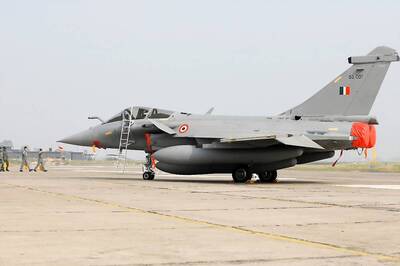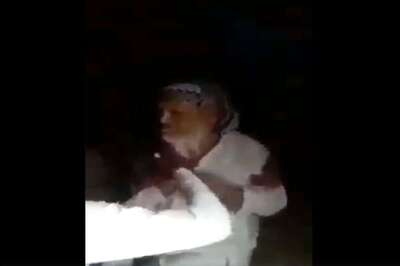
views
Chicago: A Pakistani-American, charged with sending money to the now-believed-to-be-dead al Qaeda leader Ilyas Kashmiri, has pleaded guilty before a court here for providing money for terrorist activities in Jammu and Kashmir.
Raja Lahrasib Khan, a Chicago taxi driver and native of Pakistan who became a naturalised US citizen in 1988, pleaded guilty to one count of attempting to provide material support to a foreign terrorist organisation, resolving charges that have been pending since he was arrested in March 2010.
Khan, 58, is currently in jail and his sentencing is scheduled for May 30. Born and raised in Pakistan-occupied Kashmir, Khan faces a maximum sentence of 15 years in prison. He immigrated to the US in 1970s.
His plea agreement calls for an agreed sentence of between five and eight years in prison, and it requires Khan to cooperate with the government in any matter in which he is called upon to assist through the termination of his sentence and any period of supervised release, the Justice Department said.
Khan admitted that he met with Ilyas Kashmiri, who was also involved in separatist movement in Jammu and Kashmir, in Pakistan in the early to mid-2000s and again in 2008.
At the time of the second meeting, Khan knew or had reason to believe that Kashmiri was working with al Qaeda, in addition to leading attacks against the Indian government in Kashmir, the Justice Department said.
During their 2008 meeting, Kashmiri told Khan that Osama bin Laden was alive, healthy and giving orders, and Khan gave Kashmiri approximately 20,000 Pakistani rupees (approximately $200 to $250), which he intended Kashmiri to use to support attacks against India.
The Justice Department said on November 23, 2009, Khan sent approximately 77,917 rupees (approximately $930) from Chicago to an individual in Pakistan, via Western Union, and then directed the individual by phone to give Kashmiri approximately 25,000 rupees (approximately $300).
Although Khan intended the funds to be used by Kashmiri to support attacks against India, he was also aware that Kashmiri was working with al-Qaeda, the Department said.
In February and March 2010, Khan participated in several meetings with an undercover law enforcement agent who posed as someone interested in sending money to Kashmiri to purchase weapons and ammunition, but only if Kashmiri was working with al-Qaeda, as well as sending individuals into Pakistan to receive military-style training so they could conduct attacks against US forces and interests, the Justice Department said.
On March 17, 2010, the undercover agent provided Khan with $1,000, which Khan agreed to provide to Kashmiri.
Khan then gave the funds to his son, who was traveling from the US to Britain, intending to later retrieve the money from his son in Britain and subsequently provide it to Kashmiri in Pakistan.
Further on March 23, 2010, Khan's son arrived at an airport in Britain and a search by British law enforcement officials yielded seven of the ten $100 bills that the undercover agent had provided to Khan.
After learning of his son's detention, Khan attempted to end his involvement in the scheme to provide funds to Kashmiri by requesting an urgent meeting with another individual who was also present at Khan's earlier meetings with the undercover agent.
During their meeting, Khan demanded to return the undercover agent's funds by providing $800 to this other individual, the Justice Department said.



















Comments
0 comment